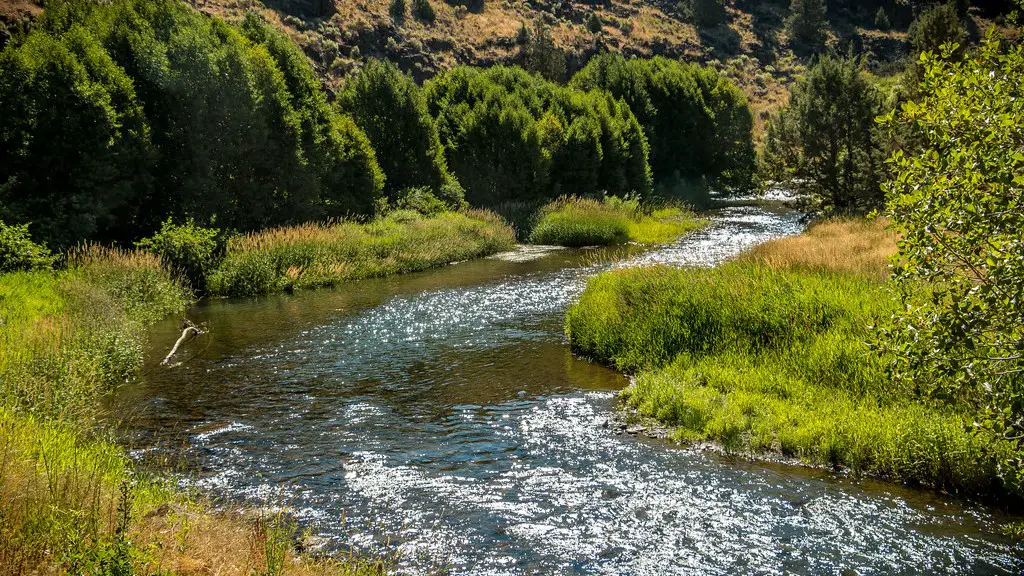The Mississippi River is an abundant provider of water to the contiguous United States, and its tributaries provide important contributions to both natural and agricultural systems. Here, we’ll discuss tributaries of the Mississippi River: their importance, the problems they face, and potential solutions.
The Mississippi River is the largest river in North America, and it forms a vital transportation artery, supplying 3.2 million jobs and $500 billion in annual economic output. The river, along with its tributaries, contributes to the lives of over 18 million people as it runs through 10 U.S. states, including Minnesota, Wisconsin, Iowa, Missouri, Illinois, Tennessee, Arkansas, Mississippi, Louisiana and Kentucky.
Tributaries, or creeks and streams that fill a main river, such as the Mississippi, play a critical role in providing clean water for drinking and for water for crops. The Missouri and Ohio Rivers are just two of the major tributaries of the Mississippi. They also provide a large source of natural habitat for fish, birds, and other species. Unfortunately, these tributaries, like the Mississippi River, suffer from pollution, sediment destruction and water draining, resulting in a deteriorating water quality. As a result, water life has been heavily impacted, and can lead to long term damage to the environment.
Experts suggest that the most effective way to mitigate or reverse the destruction of the river’s tributaries is through the implementation of conservation efforts. Conservation actions should focus on improving the water quality of rivers and streams, restoring their habitats, and monitoring the water in order to detect any changes in water quality in real time.
Restoration of tributaries not only ensures the health of the rivers, but also improves the health of the people who rely on the river. For example, in 2017, the Missouri River was the site of a large-scale conservation effort, with a funding invested to restore the river’s ecosystem and improve water quality. This will ultimately benefit a large number of people who rely on the Missouri River, including communities that depend on the river for fishing, irrigating crops, and other activities.
In addition to conservation and restoration, there are a number of other strategies that can be beneficial to the Mississippi River tributaries. These range from the use of biofuels and the upgrading of sewage treatment plants, to the adoption of water-sensitive agriculture and the enforcement of regulations and laws that limit pollution.
The Mississippi River tributaries are an essential source of fresh water and are important for sustaining humans and wildlife alike. Through conservation efforts and other strategies, we can help ensure the health of these tributaries and the larger Mississippi River for future generations.
Environmental Impact
Pollution from fertilizers and industrial waste places an immense pressure on the health of the Mississippi River tributaries. This runoff pollution, as well as chemical pollution from industry, can contaminate the water bodies, leading to toxic chemical build-up. This can result in a decline of the water quality, habitat destruction, and even fish kills. As such, it is essential to identify and reduce sources of pollution in order to maintain the health of the tributaries.
One way to address this problem is through better soil conservation strategies and techniques. Specifically, watershed managers can implement strategies to reduce runoff pollution and maintain good soil quality. This includes the use of cover crops to capture soil erosion, no-till farming, and conservation tillage to capture nutrients from runoff, and buffer strips to reduce the amount of fertilizer entering the stream.
To ensure an ecologically healthy watershed, it is essential to properly manage the land, and to ensure that water quality remains of the highest quality. The use of conservation techniques, such as precise irrigation, improved septic systems, and so on, can help reduce runoff and pollution. Additionally, by better managing land use and promoting natural areas, such as wetlands, much of this runoff and pollution can be avoided.
Finally, public participation is also vital to the success of any conservation strategy. By educating the public on the importance of protecting the Mississippi River tributaries, it is possible to create a shared understanding of how to best conserve these waterways and ensure their health for years to come.
Agricultural Practices
Agricultural practices, such as irrigation and livestock production, play a key role in impacting the health of rivers and streams, and the Mississippi River tributaries are no exception. Nutrient pollution from fertilizer runoff can lead to excessive algal growth, increasing the levels of ammonia and nitrates in the water and leading to eutrophication. As such, irrigation management and the proper use of fertilizers can help minimize this runoff, while limiting the amount of wastewater entering the watershed.
In addition to agricultural practices, livestock can have a significant impact on the water quality of rivers and streams, particularly in terms of animal waste runoff. For example, livestock can contaminate river systems with a variety of pathogenic bacteria and require an effective waste management system in order to minimize eutrophication. To this end, it is essential to employ proper waste management strategies, such as manure storage systems, land spreading, and composting, in order to protect the waterways.
Finally, it is important to note that agricultural practices can also cause sedimentation and erosion, resulting in a decline in water quality. To address this, land stewards can employ strategies to reduce sedimentation, such as buffer strips to capture and control sediment, and vegetation management practices to reduce erosion.
Urbanization
The growth of cities along the Mississippi River and its tributaries can also be a major source of pollution. In addition to contaminating the water with urban runoff, excess sediment can also be released into the water, resulting in a decline in water quality. To address this, it is essential to employ strategies to reduce affect urban watersheds, such as managing stormwater through green infrastructure, proper wastewater treatment, and preserving wetlands.
By integrating green infrastructure, such as green roofs, rain gardens, and porous pavement, cities can reduce runoff, while also providing habitats for wildlife and helping to reduce air pollution. Proper wastewater treatment is also critical to ensuring the health of rivers, as it removes sediment and phosphorus, eliminates bacteria, and helps to keep rivers clean. Finally, preserving and restoring wetlands is also essential for protecting the Mississippi River tributaries, as these ecosystems can help filter pollutants, store water, and improve water quality.
Regulation and Legislation
Finally, regulation and legislation can also play a key role in protecting the rivers and streams of the Mississippi River watershed. For example, the Clean Water Act requires states to set water quality standards and establish ways to reduce and control pollution, such as controlling stormwater runoff and implementing best management practices. This can help ensure that water quality is maintained, as well as reduce or eliminate the impact of pollutants on the environment.
Similarly, the Clean Air Act also plays an important role in controlling air pollution and protecting human health. The act limits the amount of pollutants allowed in the atmosphere, such as sulfur dioxide, nitrogen oxides, and particulate matter, as well as sets air quality standards for states to achieve. By limiting air pollution, the act can help to reduce its impact on ecosystems, including the Mississippi River tributaries.
Finally, it is important to note that regulation and legislation is only effective when it is enforced. This means that enforcement of laws is essential in order to ensure that rivers and streams are protected from pollutants and remain healthy. The implementation of penalties for those who violate regulations can help to deter pollution, and should be enforced in order to maintain the health of the Mississippi River tributaries for years to come.
Conclusion
In conclusion, the Mississippi River tributaries are vital for providing clean water for drinking and for water for crops. To ensure the health of these tributaries and the larger Mississippi River, conservation efforts must be implemented, as well other strategies such as the use of biofuels, the upgrading of sewage treatment plants, and the enforcement of regulations and laws that limit pollution. Additionally, urbanization, agricultural practices, and regulation and legislation can have both positive and negative impacts on the health of the tributaries, and it is essential to ensure that these impacts are minimized.





